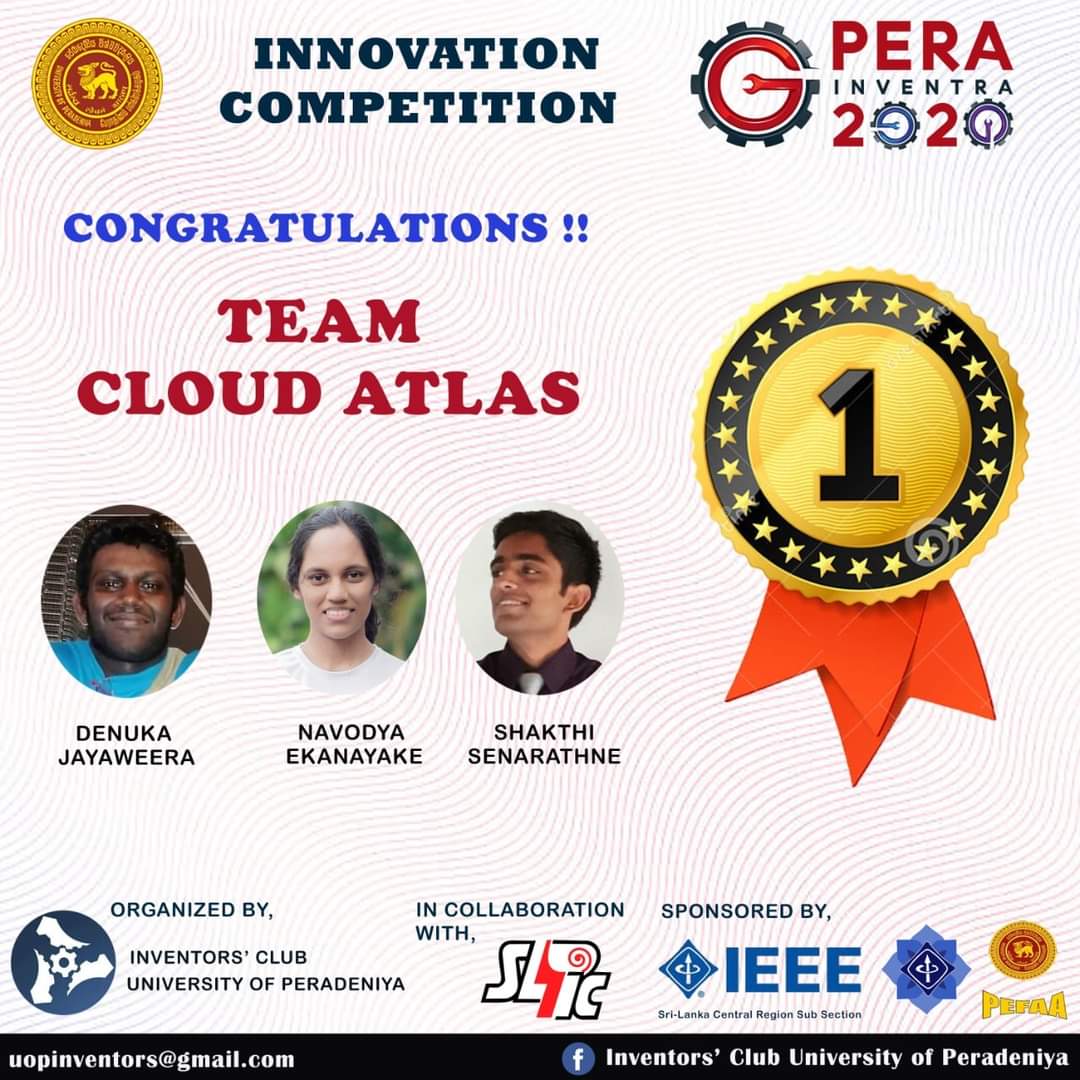2021-06-02 · 5 mins read

Three third year undergraduates from the University of Peradeniya have invented a hundred percent Bio-Degradable Sanitizer bottle and Sanitary wipe package to combat this issue. Navodya Kumari Ekanayake, a third-year medical student; Shakthi Senarathne, a third-year medical student; Denuka Jayaweera, a third-year engineering undergraduate from the Department of Computer Engineering are working on this team CLOUD ATLAS.
Their aims are to make an impact on environmental conservation, to contribute towards United Nations Sustainable development goals three six nine and twelve, to give a sustainable alternative for sanitary needs in the market, to reduce the usage of polythene and plastics and to take a value out of banana stem which is thrown away after harvesting.
Plastic usage has been abused and adulterated by mankind, stepping towards the highest risks of pollution. The net increment of usage hasn’t been calculated for the year 2020, but undoubtedly an exponential rise can be predicted. Disposal and the 3R method seems to be in the air, but plastic landfill is the commonest problem well known, but solutions are not yet properly addressed by any responsible authority.
Due to the covid pandemic, the usage of sanitiser bottles increased drastically. If five million [which is less than twenty-five percent of the population] people discard one sanitiser bottle each per two weeks, the number of sanitiser bottles discarded per month is approximately ten million bottles. If so the total amount of plastic landfill added by sanitiser bottles per month equals the total number of bottles discarded into the mean weight of one bottle which eventually add up to around three hundred thousand kilograms of plastics per month only by sanitiser bottles.
They figured out this directly affected the usage of polythene and plastic in Sri Lanka. And to add to that normal bottle of sanitiser takes about four hundred and fifty to six hundred years to get decomposed, other than that there was no such biodegradable product in the market similar to this not only in Sri Lanka but in the global context as well.
The prototyped product was the first bottle model and sanitary wipe in the world, to be made out of a banana stem as the main ingredient. All these products have a net zero percent environmental impact, Which decomposes completely within one month. They chose banana paper over normal recycled paper, to address this environmental impact issue. Even recycled paper demands an additional cost of cutting trees, which is harmful to the prevailing situation of the country. They have aimed at minimal deforestation and carbon footprint in the production process.
Recently, bamboo came as a substitute for normal trees in China and East Asian countries. But in countries like Sri Lanka, bamboo cannot be used as a substitute ingredient for paper, as we don’t have considerable bamboo cultivation targeting production. Bamboo is highly resilient against soil erosion, especially in river beds. Banana has the same properties found in bamboo and is easily found in Sri Lanka. Add to that the fineness of a banana is better than bamboo (with an average fineness of two thousand four hundred Nano meters). Worldwide there is a good market for bamboo wipes due to their softness. Therefore banana would be better
The team emerged as the ideation champions in Thinkwave 2.0 organized by the University of Moratuwa, Overall runners up in Thinkwave 2.0, champions of Pera Inventra 2021 and second runners up of YES Youth Entrepreneurship Summit organized by the University of Sri Jayawaradenapura.
Their work has also being featured in local newspaper.